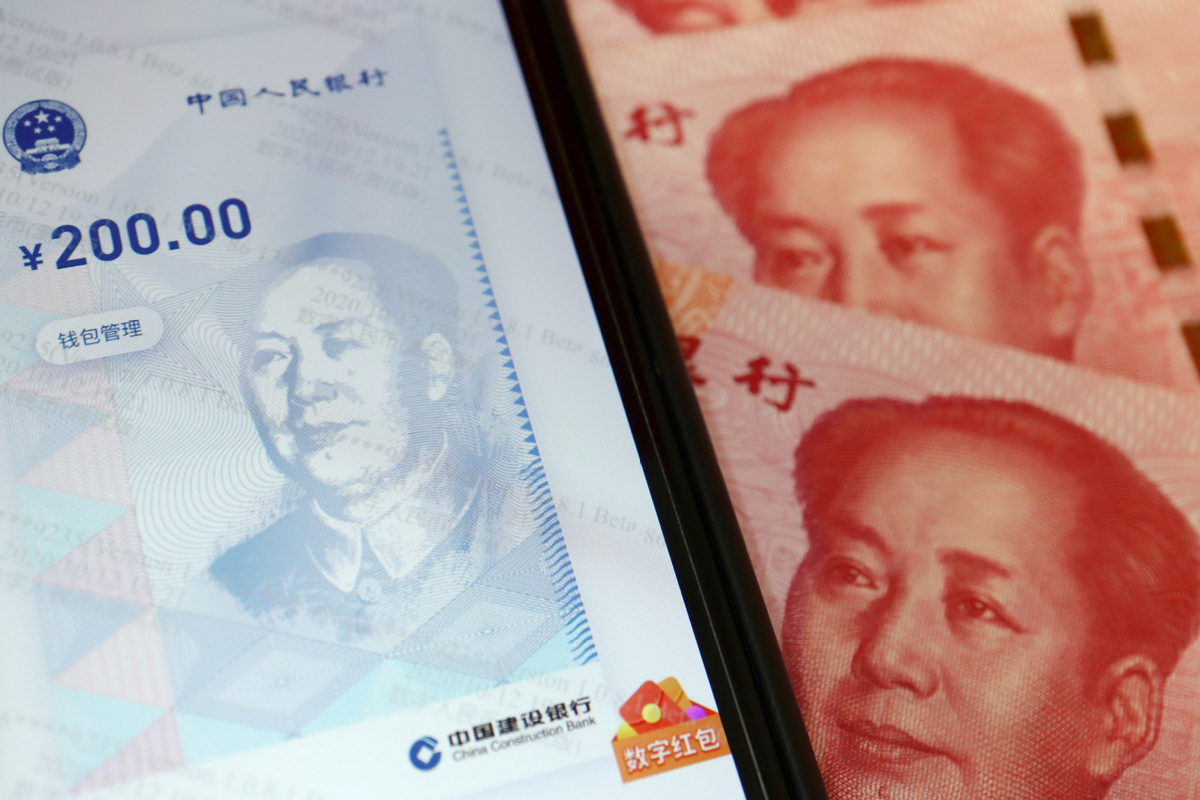Bitcoin, a private digital currency that is beyond the purview of central banks, continued its upward trend, reaching $32,164.94 on Sunday after hitting $31,000 a day before, having a total market value of more than $560 billion. In China, led by the central bank, the pilot digital RMB was recently launched in Beijing, following experimental launches in Shenzhen and Suzhou. Authorized customers at a coffee shop in Beijing's Fengtai district can now pay using digital yuan wallets. The pilot application of digital yuan for the Beijing Winter Olympic Games has also been launched on the Daxing Airport Line, inviting participants to buy subway tickets using digital RMB. As a virtual cryptographic digital currency, the peer-to-peer transmission of Bitcoin is meant to be a decentralized payment system. The total amount of Bitcoin is limited, but due to its rarity and in the absence of effective supervision, Bitcoin transactions have invited speculation, as indicated by its prices rising by a record 12 million times in a decade. Of course, the boom has to do with countries adopting loose monetary policies to boost slowing economies during the novel coronavirus pandemic. Bitcoin's status as a private currency will not change. If its price continues to soar and attract the participation of speculative capitals, its siphon effect will lead to the formation of virtual financial bubbles. In that case, more and more capital will be out of reach of central banks' regulations and serious consequences may emerge. Bitcoin's decentralization will lead to hollowing-out of the regulators' supervisions and a decrease in real money will force central banks to print more notes, triggering global inflation and even systemic financial risks. That way, China's digital RMB not only retains the advantages of Bitcoin's security, confidentiality and easy recording, but also makes up for its lack of supervision. Ever since President Xi Jinping backed blockchain technology in October 2019, China has been at the forefront of research and promotion of digital currency. In the post-pandemic era, the global economy still needs central banks to help through well-regulated monetary policies. That means all countries need to put in place stricter regulations besides allowing private digital currencies such as Bitcoin to push for capital binges. The re-engineering of the global financial system with digital currency as the core is on the agenda. Whoever first introduces a mature digital currency system can set rules for the global monetary and financial system. Therefore, the digital RMB may not only remove the digital currency chaos caused by Bitcoin, but also build a new regulatory system for digital currency. - BEIJING Youth Daily
Digital RMB has advantages over Bitcoin
Editor:贺予菁
Source:China Daily
Updated:2021-01-06 17:25:36
Source:China Daily
Updated:2021-01-06 17:25:36
Special
Contact
Welcome to English Channel! Any suggestion, welcome.Tel:0731-82965627
lisl@rednet.cn
zhouqian@rednet.cn











